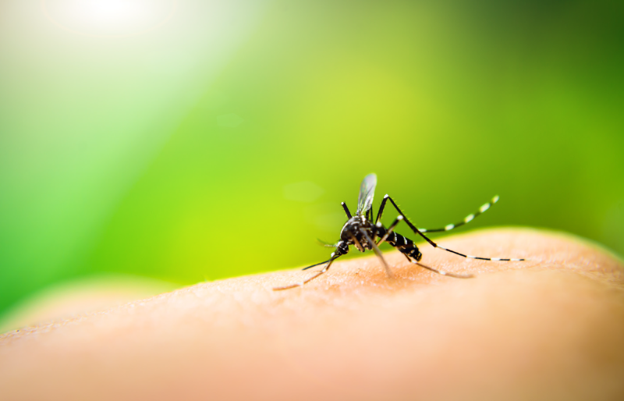2024-01-20 16:40:00
DENGUE Small Bite, Big Threat

Dengue (DENG-gey) fever is an infection caused by dengue viruses (4 serotypes DENV) transmitted by Aedes aegypti or Aedes albopictus mosquitoes while taking a blood meal. Infection may be asymptomatic or present with a broad range of clinical manifestations. Dengue fever cause high fever and flu-like symptoms. The severe form of dengue fever, also called dengue haemorrhagic fever, can cause serious bleeding, a sudden drop in blood pressure (shock) and death.
Dengue Fever:
Dengue (DENG-gey) fever is an infection caused by dengue viruses (4 serotypes DENV) transmitted by Aedes aegypti or Aedes albopictus mosquitoes while taking a blood meal. Infection may be asymptomatic or present with a broad range of clinical manifestations. Dengue fever cause high fever and flu-like symptoms. The severe form of dengue fever, also called dengue haemorrhagic fever, can cause serious bleeding, a sudden drop in blood pressure (shock) and death.
Dengue Fever Symptoms:
Dengue is found in tropical and sub-tropical countries in Africa, Asia, and South America. Dengue has become an annual epidemic in many parts of South-East Asia from 2012 onwards, and the disease is becoming more hazardous with change in environment. More than half of the world's population is in danger, with an annual estimate of 100–400 million infections, 96 million clinical symptoms, and 40,000 fatalities.
Dengue virus can be confirmed in early stages through virus isolation, nucleic acid, or antigen detection. At the end of the acute phase of infection, serology is the method of choice for diagnosis.
Acute Phase Testing:
After symptoms onset, 1-7 days are referred to as the acute phase of dengue. Virus or virus components (RNA or antigens) can be detected in serum, plasma, whole blood and infected tissues during the acute phase, which corresponds roughly to the duration of fever. Dengue virus RNA can be detected with molecular tests and non-structural protein NS1 (a dengue virus protein) can be detected using commercial tests like Rapid and ELISA. An immunoglobulin M(IgM) test is also done in this period. Finding negative for the above is not conclusive and should be followed by other serological testing.
Convalescent Phase Testing:
Beyond 7 days following symptom onset is referred to as the convalescent phase of dengue. At the end of the acute phase of infection, serology is the method of choice for diagnosis. Serological assays to detect specific immunoglobulin M (IgM) or immunoglobulin G (IgG) antibodies to dengue virus are widely available. IgM antibodies are detectable in 50% of patients by day 3-5 after onset of illness and increases to 99% by day 10. IgM levels peak about two weeks after the onset of symptoms and then decline generally and are undetectable over 2–3 months. Anti-dengue serum IgG are detected at low titres at the end of the first week of illness, it then increases slowly, with serum IgG still detectable after several months, and probably even for life.
Dengue Test Range with Athenese:
TRUSTline RAPID KIT
TRUSTwell RecombiLISA ELISA KIT